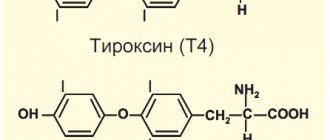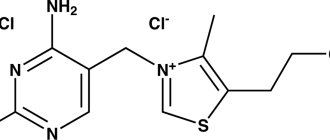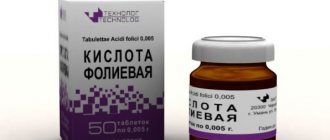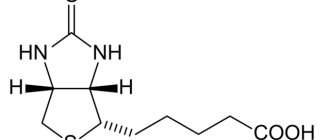The value of potassium for humans
This microelement is responsible for the condition and performance of many systems and organs of the body. It regulates the functioning of muscle fibers, blood vessels and heart muscle, stabilizes the processing of sugar into energy, normalizes the level of electrolytes in the blood and stimulates the functioning of the nervous system.
In addition, potassium provides protection for the body from the negative effects of sodium ions.
The role of potassium in the human body
The main task of the microelement is to alkalize the blood. This cation is also responsible for the level of magnesium in the blood serum.
It normalizes the conductivity of nerve fibers, helping to eliminate depressive disorders, and stabilizes brain function, increasing oxygen access to this organ.
Stable functioning of the cardiovascular system is another function for which the body needs potassium. Without the potassium element, the heart will contract incorrectly, so it will not be able to provide normal blood circulation.
To eliminate allergic manifestations, medical experts recommend using drugs and products that contain a lot of potassium.
The potassium trace element also has a positive effect on organs, including the liver, kidneys, cells, etc. Its deficiency negatively affects the health of teeth, bone tissue, hair and nail plates.
In addition, the role of potassium is that it ensures the removal of excess fluid from the body, minimizes the negative effects of toxins on organs and normalizes the synthesis of many enzymes.
Some potassium salts (including bromides and iodides) are used to treat constipation and improve kidney function.
The role of potassium in the human body
Potassium plays an important role in the human body. What is this chemical element needed for? Medical professionals name several very important factors why potassium is so important for the human body:
- Normalizes oxygen exchange, thereby improving brain activity.
- Normalizes metabolic processes, helping the body break down or absorb other elements necessary for health. If you have been following a diet for a long period of time, and your body weight still remains the same, it means that you do not have enough potassium in your diet.
- Normalizes the functions of the genitourinary system, preventing stagnation of fluid and accumulation of waste.
- Maintains normal magnesium levels in the body, which protects the heart.
- Positively affects muscle tissue. The macroelement constantly monitors muscle tone, restoring it after each heavy physical activity. Potassium also prevents cramps and aching pain.
- Helps strengthen bones. Although calcium and fluoride are involved in the formation of strong bones, potassium is also necessary for the development of healthy bones. © https://ydoo.info/micro/kaliy.html The last macronutrient helps protect bones from osteoporosis.
- By constantly consuming foods rich in potassium, you will prevent the risk of diseases associated with the cardiovascular system. The described element helps reduce blood pressure, normalize heart rate, and strengthen blood vessels.
- It is used in the treatment of diseases associated with the nervous system, helping to stabilize the general condition, getting rid of prolonged depressive states and breakdowns. Also helps eliminate fatigue syndrome.
- Takes a direct active part in the utilization of glucose, and is also responsible for the proper contraction of muscle fibers.
- Maintains fluid balance and intracellular pressure at the proper level. In addition, potassium is found in all fluids in the body.
- Improves the ratio of the amount of energy entering the body with the energy that was consumed by the body.
Medicines that contain sufficient concentrations of potassium are prescribed to treat serious diseases such as:
- atherosclerosis;
- inflammation of the gastrointestinal tract;
- hepatitis;
- hypertension;
- osteoporosis;
- diabetes.
With potassium deficiency in the body, the nervous and cardiovascular systems are mainly affected.
This chemical element penetrates into the human body when consuming potassium-containing food and water. Complete absorption of the macronutrient occurs directly in the intestine. Potassium is excreted from the body along with urine. Since the described substance does not accumulate in the body, the need for potassium becomes daily.
Daily intake of the substance
In order not to cause a deficiency or excess of the substance in the body, you need to know exactly the daily requirement of potassium, which is beneficial to the human body. The following is a list of patient categories and the amount of potassium needed for each category (amount in milligrams):
- small children under two years old – 400-600;
- children from three to five years old – 3000;
- children from six to eight years old – 3800;
- children from nine to thirteen years old - 4500;
- teenagers – 4600;
- adults – 4700;
- pregnant women and during breastfeeding – no more than 5100;
- during physical activity and during the treatment period - no more than 5000.
Doctors do not recommend exceeding the daily dose of potassium to avoid an overdose of the element in the body.
Macronutrient deficiency
A lack of potassium in the body can be caused by a number of serious reasons, namely:
- diseases of the kidneys and digestive organs;
- poor nutrition;
- dehydration of the body after consuming medicinal compounds or after poisoning;
- constant stress on the nervous system;
- failure of almost all important metabolic processes in the body;
- consumption of large quantities of various sweets, coffee, alcoholic beverages;
- excessive intake of macroelements into the body that promote the excretion of potassium.
Symptoms of potassium deficiency in the body:
- diseases of the reproductive system;
- the occurrence of erosions and ulcers on the mucous membrane;
- high blood pressure;
- the skin becomes dry, the condition of the nail plate and curls worsens;
- weakened immune system;
- swelling of the face and limbs;
- constant feeling of tiredness;
- problems with stool;
- regular muscle cramps;
- chronic exhaustion;
- frequent urination;
- rapid pulse and breathing.
Pregnant women with a lack of potassium in the body experience symptoms such as muscle weakness, nausea, and toxicosis throughout pregnancy.
With a long-term deficiency of a macronutrient, there is a risk of developing arrhythmia, heart disease, diabetes, and acid-base balance disorders.
How to check potassium levels in the body? To do this, you can take a blood test, which will show the content of the element inside the body.
How to fill the body with potassium? If you have a deficiency of this substance, experts advise introducing foods that contain large amounts of potassium into your diet. Doctors may also prescribe medications that increase potassium levels in the body. Among such medicines, “Potassium chloride”, “Asparkam”, “Potassium foam” stand out. Under no circumstances should you try to take this type of medication yourself, because there are contraindications for use. It is best to consult a doctor for advice.
Excess potassium in the body
Excess potassium in the body is fraught with very serious consequences, which will further negatively affect overall health. Experts name the following reasons for the appearance of excess potassium in the body:
- lack of insulin;
- renal failure;
- regular adherence to a diet that uses foods rich in potassium;
- failure in metabolic processes;
- change in hormonal levels;
- consumption of potassium-containing medicinal compounds in very large quantities.
A single intake of six grams of potassium can cause disruption of basic body functions. If the concentration of potassium in the body exceeds fourteen grams, then such a dose will become fatal to a person.
Symptoms of excess potassium in the body:
- arrhythmia;
- the occurrence of a nervous state;
- high excitability;
- colic in the intestines and stomach;
- increased anxiety;
- heavy urination;
- convulsions, muscle tremors, as well as paralysis that occurs in very severe cases;
- increased sweating;
- increased blood sugar levels.
Also, with an excess of potassium in the body, both women and men (mainly with an increased concentration of the macroelement in the blood) experience symptoms such as rapid heartbeat, dizziness and short-term darkening in the eyes.
Excess potassium in the body can negatively affect the functioning of the heart, as well as provoke the development of urolithiasis or diabetes.
How to remove potassium from the body? Doctors prescribe special drugs that remove potassium, which are presented in the form of tablets or the medicine must be administered intravenously. In addition, doctors can prescribe a cation exchange resin, which absorbs potassium and removes the element from the intestines along with stool. The resin is introduced into the body orally, without being absorbed into the internal organs.
Also, patients with excess potassium are prescribed intravenous calcium and insulin injections, if necessary.
How much potassium should you consume daily?
The daily intake of drugs and products with potassium depends on age. For minors, the dosage is calculated at 15-30 mg per 1 kg of body weight. For adults, the minimum daily dosage is 1000 mg, the optimal is 2000 mg.
For the period of training in order to increase muscle mass, the consumption rate must be increased to 4000-5000 mg/day. For this purpose, a special diet or medications are used.
Potassium deficiency
If there is insufficient potassium in the body, the condition is called hypokalemia.
Main reasons
The main reasons for the development of element deficiency:
- too intensive removal from the body along with water;
- following dietary patterns too often;
- improper diet;
- excessive consumption of tea, soda and coffee;
- sodium concentration too high;
- increased levels of cesium, thallium and rubilium ions;
- the use of herbal remedies and medications that have a diuretic effect;
- hormone therapy;
- regular stress;
- diseases.
Symptoms of deficiency
With a microelement deficiency, the following negative manifestations are noted:
- convulsions;
- muscle weakness;
- constipation;
- swelling;
- weakened immunity;
- arrhythmia;
- state of apathy and feeling of drowsiness;
- deterioration of the functioning of the gastrointestinal tract;
- decrease in the amount of urine excreted;
- metabolic disease;
- baldness;
- nausea and/or vomiting;
- pressure surges;
- the formation of bruises in different parts of the body;
- dry skin;
- heart problems;
- breathing problems;
- increased fragility of nail plates;
- increased nervousness;
- deterioration during pregnancy;
- ulcerative lesions of the gastrointestinal mucosa.
Consequences
If hypokalemia is untreated, an erosive form of gastritis, erosion of the uterine cervix and stroke may develop. In severe cases, there is a high risk of death due to a heart attack.
To compensate for the lack of substance, the doctor prescribes a special diet and vitamin complexes. Negative manifestations require symptomatic therapy.
Foods rich in potassium
In order to provide the body with the daily requirement of potassium, it is enough to drink a glass of cranberry, grape or apple juice. You can also prepare a drink from apple cider vinegar, honey and boiled water. Add one tablespoon of vinegar and honey to a glass of chilled boiling water.
Potassium is also found in foods such as: dried apricots, raisins, prunes, nuts (hazelnuts, cashews, pine, peanuts, almonds), seaweed, beans, peas, lentils, dairy products, fish, seafood, avocado, pumpkin, mustard and potatoes .
The optimal product that can quickly normalize the level of potassium in the body is millet. Before you start preparing the porridge, the cereal should be heated over a fire, without allowing it to change color. After piercing, you should cook the porridge over very low heat. The dish should contain as little salt as possible. In order for the body to be maximally saturated with potassium, you should consume the porridge in several doses throughout the day.
300 g of potatoes baked “in their jackets” practically contain the daily requirement of potassium for an ordinary adult.
Legumes not only contain potassium, but also retain this mineral in the body.
Foods rich in potassium are also dried fruits and dried mushrooms. But the latter product can only be consumed from the age of ten. Before reaching this age, mushrooms have a bad effect on the gastrointestinal tract.
Teas and compotes made from natural fruits also replenish mineral reserves. But if you overdo it with fluid intake, potassium will begin to act as a diuretic, and you will get the opposite effect.
When exposed to high temperatures, potassium is destroyed or dissolved in the liquid. For this reason, it is better to steam or stew vegetables. If the product can be consumed raw, it is better not to heat it.
The largest amount of potassium is found in slightly unripe, small-sized fruits.
The amount of potassium in fish or meat dishes decreases if they sit for several hours. This food should be consumed immediately after preparation.
The fresher the greens, the higher the content of nutrients. The best option is 2-3 hours after collection from the garden.
Excess potassium
Excess potassium in the body (hyperkalemia) poses the same threat as its lack. If the concentration of this trace element is exceeded, dangerous pathologies may develop in the body, which require immediate medical intervention.
Main reasons
The most common causes of hyperkalemia:
- unbalanced diet;
- prolonged use of potassium-containing drugs;
- improper functioning of the kidneys;
- problems with potassium metabolism;
- disruptions in the functioning of the endocrine system;
- cytolysis and hemodialysis procedures;
- changes in serum sodium and magnesium levels;
- dysfunction of the sympathoadrenal system;
- problems with the urinary system.
Symptoms of excess
Hyperkalemia may be accompanied by the following negative signs:
- impaired mobility and sensitivity of the fingers of the lower and upper extremities;
- hyperactivity;
- muscle degradation;
- colic in the intestines;
- feeling of thirst;
- profuse sweating;
- frequent urination;
- formation of kidney stones;
- pale skin;
- intestinal disorders;
- sense of anxiety;
- skeletal muscle paralysis;
- muscle degradation.
Consequences
In severe cases, hyperkalemia can cause the development of anemia, paralysis and tissue necrosis. In this case, there is a possibility of death. If any adverse side effects occur, you should consult your doctor.
Overdose safety rules
Potassium overdose can be caused by certain birth control pills, ACE inhibitors, or nonsteroidal anti-inflammatory drugs. The most common cause of overdose is kidney failure. Because the kidneys excrete potassium from the body, any deterioration in normal kidney function causes potassium levels to rise.
Excessive amounts of potassium supplements should be avoided. Potassium-sparing diuretics or salt substitutes also cause hyperkalemia. Identifying the cause of hyperkalemia is critical to choosing the appropriate treatment route.
Symptoms
Overdose symptoms include:
- lowering blood pressure;
- cramps in the stomach;
- diarrhea;
- nausea and vomiting;
- irritability and fatigue.
When the content of the element in the heart cells is disrupted, cardiac arrhythmias occur, which leads to neuromuscular failure. Some people report tingling in their fingers, toes, and tongue. In severe cases, hyperkalemia leads to respiratory failure or flaccid paralysis of the arms and legs. If treatment is not started promptly, the excess will have long-term effects on arterial and venous blood pressure, heart rhythm, gastrointestinal tract and renal function.
Treatment
The main goals of treating hyperkalemia include normalizing heart rate and stimulating the elimination of the element from the blood. Calcium gluconate, sodium bicarbonate, diuretics, sorbitol, or insulin are often administered. The action of these drugs is aimed at moving potassium ions from the blood back into cells or accelerating their release.
Potassium standards for different categories and ages
The optimal level of this substance is individual for each individual case, depending on the person’s age, daily routine, health status and diet.
Most of this substance is required by professional athletes and people whose bodies are deficient in it. In this case, it is used in dosages up to 5000 mg/day. To compensate for the level of microelement, special preparations with potassium can be used.
Adults need to consume from 1500 to 2000 mg of microelement per day. Nursing and pregnant women need an increased daily dosage (from 3300 to 3500 mg).
For adolescent patients, the dosage is calculated based on weight - 20 mg is needed per 1 kg of body weight.
An increased content of potassium in the daily diet is also required for people who use medications that accelerate its elimination from the body, are engaged in heavy physical work, or are exposed to significant stress. In such situations, you should consult a doctor, who will determine the daily requirement of potassium in grams and give additional recommendations on maintaining the optimal concentration of this trace element in the body.
What is the normal level of potassium in the blood of a woman, man and child?
In children, the microelement norm in the blood is as follows:
- under 1 year – from 4 to 5.4 mmol/l;
- from 1 to 15 years – from 3.2 to 4.8 mmol/l;
- from 15 to 18 years – from 3.3 to 4.8 mmol/l.
The amount of substance depending on age and gender:
- from 18 to 40 years: for women – from 3.4 to 5.6 mmol/l, for men – from 3.4 to 5.6 mmol/l;
- over 40 years old: for women – from 3.3 to 4.8 mmol/l, for men – from 3.8 to 4.6 mmol/l;
- over 50 years of age: for women – from 3 to 4.5 mmol/l, for men – from 4 to 5.3 mmol/l.
Experts were able to prove that during the period of gestation, the concentration of the potassium microelement in the female body changes depending on the period, and after childbirth it decreases significantly, which is due to heavy blood loss.
In addition, women over 50 years of age need to monitor the concentration of this substance with particular care. The critical age for men is from 60 years.
Age and sex differences in dosage
The optimal amount of mineral that should be supplied from food is determined by 2 factors - age and activity level. Specialists at Elena Morozova’s weight loss clinic will help you navigate the products and medications that will be optimal for you, taking into account your lifestyle and health status.
It is important to understand that gender is not decisive - the daily intake of potassium for women and men is comparable. This is 2 grams for people who do not experience significant physical activity; 3-5 grams for those who regularly play sports or spend a lot of energy at work (loaders, farmers).
Read more: Brussels sprouts health benefits and harms
Children under one year old need 0.3-0.6 g, 1-8 years old - 3-3.8 g, 9-18 years old - 4.5-4.7 g.
The lethal dose for an adult is considered to be 14 g.
Pills
Should be taken orally after meals with liquid (it is recommended to drink milk or jelly).
Tablets are taken after meals with liquid, 50–200 mcg per day. To prevent goiter:
- newborns and older children - 50–100 mcg/day;
- adults and adolescents - 100–200 mcg/day;
- during pregnancy and breastfeeding - 150–200 mcg/day.
To prevent goiter recurrence after its surgical removal or upon completion of a course of treatment with thyroid hormones - 100–200 mcg/day; for the treatment of euthyroid goiter - 100–200 mcg.
The course of therapy is 6–12 months.
Solution
Can be prescribed as a mucolytic agent. In this case, take 0.3–1 g of the drug (2–3 tablespoons of a 1–3% solution) 3 or 4 times a day.
In ophthalmology, a 3% solution of Potassium iodide (drops) is used. The average dose of the drug for conjunctival installations is 2 drops in each eye 3 or 4 times a day. Treatment lasts from 10 to 15 days.
Magnesium in the form of drugs or as part of food is prescribed for the following indications:
- diseases of the cardiovascular and nervous systems;
- vegetative-vascular disorders (dizziness, migraines, constant weakness, tingling sensation in the limbs);
- period of stress and psycho-emotional stress;
- chronic alcoholism;
- diabetes;
- long-term use of laxatives and diuretics;
- osteoporosis;
- frequent muscle spasms and pain;
- brittle nails and hair, baldness;
- constant bad mood;
- chronic fatigue, increased fatigue;
- taking hormonal contraceptives;
- sleep disorders.
Not all patients are allowed to take magnesium in ampoules and tablets according to indications. Instructions for use of the selected drug contain a list of medical contraindications:
- increased sensitivity of the body to macronutrients;
- phenylketonuria;
- complicated renal failure;
- myasthenia gravis;
- dehydration of the body;
- children under 6 years of age;
- intestinal obstruction;
- hereditary metabolic syndrome;
- intestinal bleeding;
- increased sweating;
- rare pulse, atrioventricular heart block.
Presence of potassium in medications
Pharmacies now sell special potassium-containing drugs.
Most often they are prescribed:
- in case of disruption of the cardiovascular system;
- hypoglycemia;
- micronutrient deficiency;
- drug intoxication.
Such drugs are not prescribed for disorders of the urinary system and adrenal insufficiency.
The most popular drugs containing potassium are:
- Pentovit;
- Complivit;
- Alphabet;
- Vitrus.
Experts recommend using these drugs in courses of 30 days.
In addition, Asparkam and Panagin can be prescribed to compensate for the lack of microelements. These drugs contain not only a lot of potassium, but also magnesium. They are often prescribed for angina or after a heart attack.
In cases of severe hypokalemia, agents based on microelement chloride and acetate are prescribed.
Medicines with potassium
Effective medicines containing Kalium are: Asparkam in tablets and ampoules, Asparkam-L, Asparkam Renewal, Panangin, potassium and magnesium asparaginate.
| Asparcam | Panangin | |
| Release form | Tablets and solution | Tablets and solution |
| Contraindications | Hyperkalemia, hypermagnesemia, renal failure, Addison's disease, cardiogenic shock | Myasthenia gravis, cardiogenic shock, Addison's disease, acidosis, renal failure, hyperkalemia |
| Side effects | Well tolerated. Rarely - dyspepsia, vomiting, decreased blood pressure, convulsions | Abnormal bowel movements, nausea, abdominal discomfort, symptoms of hyperkalemia and hypermagnesemia |
| Manufacturer | Galichfarm, Niko, Krasnaya Zvezda, Lugansk Chemical Plant, Stirolbiopharm | Gedeon Richter |
| approximate cost | From 50 to 110 rub. | From 150 to 350 rubles. |
For convulsions
To eliminate seizures, drugs with K such as Panangin and Asparkam are used. Their important advantage is the ability to use them in old age.
The most commonly used potassium drug for heart disease is Asparkam in different variations. Additionally, the dietary supplement Doppelgerts Active is used.
Indications for the use of Asparkam are:
- cardiac ischemia;
- heart failure;
- overdose of cardiac glycosides;
- heart rhythm disturbance after a heart attack.
In case of CVS pathologies, self-medication is unacceptable. Potassium supplements should be prescribed by a doctor after examination. Treatment is complemented by other means.
For prevention
To prevent cardiovascular diseases and other pathologies caused by potassium deficiency, the same drugs are used, but in a different dosage. For preventive purposes, it is better to use vitamins. Medicines containing potassium should be prescribed by a doctor.
Potassium compatibility with other elements and digestibility
The trace element is absorbed from the gastrointestinal tract. It is eliminated from the body by the kidneys.
The substance does not concentrate in the body in the absence of health problems. The microelement coming from food is absorbed by 93-95%. Too frequent consumption of tea, coffee and alcohol can have a negative effect on the absorption of microelements.
Potassium and magnesium also influence each other. With increased magnesium concentration, sodium concentration decreases. With a deficiency of the magnesium element, the potassium substance begins to be absorbed less efficiently.
The relationship between potassium and sodium
There must be a balance between the level of this trace element and sodium, otherwise the substances will not perform their functions. If this ratio is violated, convulsive conditions and disturbances in the functioning of the nervous system may occur. If the balance between the potassium element and magnesium is disturbed, the functioning of the nervous system and heart muscle is disrupted.
Interaction with other substances
There is a strong relationship with sodium. These 2 important components have the opposite effect on water metabolism (they are antagonists): K promotes the excretion of fluid, Na, on the contrary, tends to retain it. An imbalance in favor of the second interferes with the unimpeded excretion of metabolic products, which creates a risk of hypokalemia. To maintain an optimal balance of micro- and macroelements, you should monitor your diet.
Magnesium, on the contrary, enhances the positive effect of potassium on the human body and also promotes better absorption. These 2 components act synergistically: they accelerate metabolism, give strength and endurance, tune the muscles to a harmonious rhythm of work, alternating phases of excitation and relaxation in the correct rhythm.
K is often included in mineral and vitamin complexes, which are recommended for use during weight loss. Switching to healthy foods, as we already mentioned, implies a nutritious diet that fully meets your nutrient needs.
Vitamins with potassium are usually either mineral complexes for supplementing food, or specialized preparations for treating deficiency of this macronutrient in the body. As part of vitamin complexes, its concentration reaches approximately 2%, more in specialized preparations.
Vitamins potassium and magnesium are used specifically for the prevention and treatment of cardiovascular diseases. These drugs are not recommended for independent use, because can cause an excess of the substance in the body.
A person without a diagnosed potassium deficiency in the body should not take specialized medications. This macronutrient is perfectly absorbed from foods, which can make up a large proportion of the daily diet. To balance the elements in the body, it is enough to review your menu and prefer natural products, tablets and dietary supplements.
Vegetables and fruits that can be consumed without heat treatment are best eaten raw or as part of a smoothie. For others, it is better to choose the steaming method or bake without oil. With high intellectual or physical stress, it is better to add as many foods as possible that contain the most potassium to your diet. Many fruits, berries and dried fruits also contain potassium - it is preferable to make desserts and snacks from them.
Diuretics.
Which foods contain the most potassium?
The human body is not able to synthesize microelements on its own, so they must come from outside.
There are a large number of potassium-containing products, both animal and plant origin.
Products containing potassium. Table
| Product | Microelement content (in mg per 100 g) |
| Dutch cheese, rice cereal | 100 |
| wheat cereal, apple juice | 120 |
| chicken eggs and natural milk | 140 |
| pearl barley | 172 |
| carrots, orange | 200 |
| natural yogurt, garlic, onion | 260 |
| oatmeal, peaches | 362 |
| cabbage | 370 |
| buckwheat | 380 |
| bananas | 400 |
| avocado, porcini mushrooms | 450 |
| boiled potatoes | 630 |
| sunflower seeds and peas | 710 |
| peanuts and parsley | 760 |
| pine nuts, almonds | 780 |
| raisin | 1020 |
| raisin grapes | 1060 |
| wheat bran | 1160 |
| coffee beans and cocoa | 1600 |
| dried apricots | 2480 |
| tea | 2480 |
The influence of potassium ions on the functioning of the cardiovascular system
All information and scientific research concerning the normal functioning of the heart and the functioning of the vascular system are currently very relevant due to the increased level of stressful situations, an increase in the pace of life, and the widespread spread of bad habits (smoking, alcoholism of the population). The incidence of angina pectoris, coronary artery disease, and the risk of heart attack and stroke are currently very high. Potassium, the daily norm of which enters our body primarily with valuable animal products: fish, veal, milk, normalizes blood pressure and regulates myocardial innervation. This helps prevent heart rhythm disorders: arrhythmia and tachycardia. One should not discount the fact that the macroelement is contained in many plants that serve as food for us, namely: in potatoes - 420 mg, in beets - 155 mg, in cabbage - 148 mg (per 100 g of product).
What is the normal level of potassium in the body?
Neither hypokalemia nor hyperkalemia has dietary causes. They are often the result of other underlying medical conditions or reactions to certain medications.
How much potassium do I need in my diet?
Currently, most Americans do not consume enough potassium. In fact, the typical American consumes only 56% of this amount. Therefore, most of us need to increase our dietary potassium intake. For people with kidney disease and those taking certain medications, we advise that you consult your doctor for specific guidance regarding your potassium intake.
Tips for proper cooking
The benefits of any dish depend on its acidity, cooking temperature and oxygen supply. With prolonged thermal exposure, the structure of vitamins and microelements, including potassium, is destroyed.
To ensure that the prepared products are as healthy as possible, you must follow the following recommendations:
- food must be cooked at a temperature not exceeding +100°C;
- It is advisable to use a multicooker for cooking;
- The microwave oven should be used as little as possible;
- limit the amount of vegetable oil consumed.
In addition, nutritionists recommend avoiding or minimizing the amount of fatty foods consumed.
Potassium mixture. Recipe
To provide the body with potassium, you can use a mixture prepared from dried fruits. It contains the following ingredients:
- walnuts (0.2 kg);
- honey;
- lemon;
- prunes (0.2 kg);
- raisins (0.2 kg);
- dried apricots (0.2 kg).
The components of the cocktail are thoroughly mixed with each other, washed and steamed. You can use a meat grinder to grind them.
The finished mixture can be stored in the refrigerator in an airtight container. You need to consume the cocktail 1 tbsp. l. three times a day after meals. For minors, 1 dose/day is enough.
Nuts and dried fruits contain large amounts of this microelement, which normalizes the functions of the heart muscle. These products may be beneficial in the treatment of hypertension and atherosclerosis. Prune berries have a tonic effect and are often used to prevent cancer. Dried apricots improve visual function and the condition of blood vessels. Honey is one of the universal medicines.
Vitamin preparations containing potassium
To prevent or eliminate hypokalemia, special vitamin preparations can be used. The most popular of them:
- Vitrum centuria. Combined action agent. It contains all the substances that people over 50 need. Available in the form of tablets of 80 mg of the active ingredient (potassium).
- Dopelhertz Active. This drug compensates for the lack of vitamins and microelements in the body, improves mood and performance. The daily dosage of the product contains 600 mg of the potassium microelement. The manufacturer positions this product as an auxiliary source of biological substances.
- Teravit anti-stress. A complex multivitamin that contains extracts of some medicinal herbs and a large number of microelements. The drug is affordable. 1 granule contains 80 mg of potassium.
- Vitrum plus. Most often used during the period of rehabilitation after infections and viral pathologies, as well as during intense physical and intellectual stress.
- Panangin. The drug has moderate antiarrhythmic activity and normalizes metabolism.
- Asparkam. Contains a lot of magnesium. Normalizes metabolism and electrolyte balance.
- Potassium chloride. The product is available in glass ampoules. 1 ml of medicinal solution contains 40 mg of potassium microelement. The drug is prescribed for microelement deficiency and arrhythmia.
- Kudesan. 1 tablet of the product contains 0.097 g of potassium microelement. The drug is used in the treatment of diseases of the blood vessels and heart, as well as to reduce high blood pressure.
- Basiko concentrate. This product is a dietary supplement and is intended to stabilize the balance of a number of microelements. The concentrate is used for bone fractures, cardiovascular diseases, dermatological pathologies, gastric ulcers, urolithiasis and a number of other diseases.
- Centrum. A complex action product that contains many minerals and vitamins. Most often used to prevent hypovitaminosis, after long-term illnesses, treatment with antibiotic medications and with an unbalanced diet.
- Aspacard. Each tablet contains 36 mg of pure microelement. The drug prevents the development of arrhythmia.
- Vitalux plus. The biologically active food supplement is recommended for use in cases of retinal dystrophy and ophthalmological pathologies. Can be used as an auxiliary source of microelements.
- Orocamag. This drug is often included in the complex treatment of extrasystole and angina. Each tablet contains 125 mg of potassium trace element in the form of orotate and also the same amount of magnesium orotate.
- Pamaton. A product that contains magnesium. Available in the form of tablets or solution. It is used to prevent diseases of the cardiovascular system and compensate for the deficiency of vitamins and microelements in the body.
- Asparginate. Produced in the form of an infusion solution. The product normalizes blood flow, dilates arteries and improves cell permeability for microelements.
Foods with the highest mineral content
Potassium can be easily found in foods. Many components of our daily diet contain enough of it so as not to suffer from its deficiency, and at the same time not to use various tricks in cooking.
- The first source of potassium that many people ignore in their diet is potatoes. The average unpeeled potato contains up to 900 mg of potassium. Thus, one baked potato for lunch replenishes more than a fifth of the daily requirement of the substance. To avoid negative consequences for your figure, we recommend cooking potatoes without oil and not seasoning them with fatty sauces such as sour cream or mayonnaise.
- For those who do not accept starch in their diet, it will be interesting to know what other foods contain a lot of potassium. An excellent option is sun-dried tomatoes and organic tomato paste without preservatives and a lot of sugar. It is best to prepare these products yourself. A glass of sun-dried tomatoes contains up to 1800 mg of potassium, which is about 40% of the daily value. In addition, tomatoes contain fiber, a complex of vitamins and minerals, and a minimum of calories.
- Red and white beans. These legumes can contain from 600 to 1000 mg of potassium (per cup of product). Ideal to add beans to hearty soups or use as a side dish.
- Dried apricots are a favorite of vegans and raw foodists. Sweet, filling and healthy - an ideal snack or addition to dessert. As for potassium, it contains almost 1200 mg (per 100 g of dried apricot). Prunes are often paired with dried apricots. It contains about 700 mg of potassium per 100 g of product, and in addition there is a complex of vitamins for strengthening bones and beautiful skin.
- In potassium content tables, avocados traditionally occupy one of the most honorable places. And for good reason. One fruit contains up to 1000 mg of it, as well as a complex of microelements for the normal functioning of the heart and blood vessels, beautiful skin and a slim figure. And most importantly, avocados can be added to any recipe: thick cream soups, pastas, smoothies and cocktails, salads and desserts. Superfood for all occasions!
- Seafood lovers will love salmon. 100 g of fish contains about 630 mg of potassium, which is much more than any other fish. In addition, salmon also contains vitamin D and omega-3, which improve the health of bones, hair and nails. In addition, the regular presence of salmon in the diet reduces the risk of mortality from heart disease by almost a third.
- Continuing the list of green foods containing large quantities of potassium, spinach cannot be ignored. A regular ingredient in detox smoothies and an excellent side dish for any fish or poultry, 100 g of product contains approximately 560 mg of potassium. Nutritionists recommend making spinach a regular ingredient in your daily diet: leafy salads containing greens contain maximum benefits and a minimum amount of calories.
- Pumpkin completes the list. Few people use this product constantly, and completely in vain: 100 g of heat-treated pumpkin contains more than 400 mg of potassium, and winter - almost 450. Pumpkin feels great in desserts, spicy drinks, warm salads and as a side dish for meat.
Summarizing the topic of healthy foods, it is worth noting that potassium contains cabbage (both fresh and pickled), fresh and dried figs, chanterelle mushrooms (preferably fresh), fresh vegetables, and whole grains. Many cereals and grain products that use whole grains also contain a high percentage of potassium.
Read more: Preparations containing B vitamins for children
Effective vitamin complexes with potassium include:
- Doppelhertz Active Magnesium Potassium - available in tablets. This is a vitamin-mineral complex (BAA) that maintains electrolyte levels, increases energy capacity, and has a positive effect on the nervous, muscular systems and heart. It is used as a source of minerals and vitamins to improve performance and prevent cardiovascular diseases.
- Vitrum is a multivitamin complex in tablets. Used to treat and prevent vitamin and mineral deficiency. Helps with high physical and mental stress. Used in chemotherapy and antibiotic therapy. Prescribed in complex therapy of infectious diseases to increase the body's resistance.
- Teravit - vitamins and minerals in tablet form. Used for deficiency conditions. Normalizes metabolic and metabolic processes. Prescribed for increased need for minerals, micro- and macroelements, vitamins.
- Vitrum Plus is a multivitamin complex in tablets. Regulates mineral, protein, nitrogen metabolism. Replenishes the need for vitamins and minerals. It is used for hypovitaminosis, increased physical activity, and unbalanced nutrition.
- Teravit Antistress tablets are a complex of vitamins and minerals, the combination of which allows you to increase the body's resistance to stress factors.
Doppelhertz Active Magnesium Potassium.
All plants are a source of potassium, especially their fruits. Some of the foods richest in this substance include tomatoes, pumpkin, garlic, parsley, and potatoes. The element is found in large quantities in dried fruits and fruits - dried apricots, grapes, melon, raisins. It is found in meat, legumes, black tea, cocoa, and nuts.
Potassium is absorbed best from them. a person receives approximately 2500 mg of the substance per day from their usual diet. In some countries this dose is increased to 6000 mg.
Kalium contents in 100 g of different products:
- coriander - 4466 mg;
- saffron - 1724 mg;
- turmeric - 2625 mg;
- fennel - 1694 mg;
- mint - 1724 mg;
- coffee - 3395 mg;
- oregano -1669 mg;
- anise - 1441 mg;
- black pepper - 1259 mg;
- cumin - 1351 mg;
- milk - 1200 mg;
- ginger - 1343 mg;
- pistachios - 1025 mg;
- soybean - 1067 mg;
- prunes - 864 mg;
- seaweed - 970 mg.
There are no problems getting Kalium in your daily diet. Its insufficient intake may be due to dietary characteristics. Deficiency can be avoided with a balanced diet. In the event that the cause of the imbalance is any disease or dietary restriction, you need to consult a doctor to choose the optimal vitamin complex or medicine with K. Taking the vitamin in tablet form will compensate for the deficiency.
Products containing potassium.
Magnesium should be taken strictly according to indications and in a certain way. An overdose of magnesium can be life-threatening.
With excessive “hobby” the following symptoms develop:
- Muscle weakness. With formally high muscle tone. The person cannot move normally, the gait is unsteady, and falls are possible. Rigidity persists for several days after the excess drug is removed.
- Bradycardia. It occurs as a result of a disturbance in the conduction of an electrical impulse from the sinus node to the chambers of the organ. This is an extremely dangerous condition. It is fraught with the death of the patient if help is not provided in a timely manner.
- Rhythm disturbances such as multiple extrasystoles. A no less formidable state of affairs. Leads to cardiac arrest without proper detoxification.
- Falling blood pressure levels. Even down to critically low levels.
The intensity and danger of these symptoms is directly determined by how severe the overdose is. At minimal excess concentrations, everything is relatively normal, the clinic is sluggish and not dangerous. This does not eliminate the need for medical intervention.
Malnutrition leads to deficiency. Including frequent and severe food restrictions. Before you give up your usual foods, ask yourself how a lack of potassium and other minerals will affect your body. Strict diets are not recommended, as they do not bring you closer to harmony, and in addition they are also harmful to your health and spoil your mood.
The use of diuretics and laxatives also leads to the loss of a significant amount of valuable macro- and microelements along with the fluid leaving the body.
Also, regular consumption of alcoholic beverages, excess coffee and strong tea will prevent a person from meeting their daily potassium needs.
Psychological well-being also plays an important role - frequent stress interferes with the normal absorption of the mineral.
- increased nervous excitement, anxiety;
- sweating;
- pale skin;
- intestinal colic;
- cardiopalmus;
- discomfort in the arms and legs;
- constant thirst.
How to take it correctly. Instructions
To achieve maximum benefits, you need to take vitamin complexes in accordance with the instructions.
The daily dosage of this substance should not exceed 500 mg. People who use various inhibitors are not advised to use products containing this microelement.
Experts recommend using a source of potassium when eating. This allows you to minimize the irritating effect on the gastric mucosa.
In addition, you can compensate for the lack of this microelement if you saturate your diet with the optimal amount of foods that contain this substance.
If you miss the next dose of a vitamin complex, the next tablet should be taken according to the schedule specified in the instructions. It is forbidden to increase the recommended dosage. You can complete the course of taking the drug only as directed by a medical specialist.
What interferes with potassium absorption?
This trace element easily interacts with many substances. However, there are some foods and elements whose consumption makes it difficult for the body to absorb potassium. The main ones:
- alcoholic drinks (including beer and champagne);
- cortisone;
- colchicine;
- syrups with sugar;
- coffee drinks;
- laxatives;
- phenolphthalein;
- cesium;
- lithium;
- sodium;
- vitamin B6;
- diuretic drugs;
- hormonal agents;
- canned and smoked food products;
- lack of magnesium;
- neomycin.
In addition, a lack of this microelement can occur when following a strict diet. Therefore, before adjusting your diet, it is strongly recommended to consult with your doctor and nutritionist, otherwise you may encounter undesirable manifestations.
Testing potassium levels in urine
For some diseases, a test is prescribed to determine the potassium content in the urine:
- to estimate the loss of substance per day;
- to identify water-electrolyte imbalances;
- to analyze renal and non-renal causes of micronutrient loss;
- to control the functioning of the adrenal cortex and kidneys.
The study may be ordered:
- to assess the effectiveness of therapy with potassium preparations in intensive care patients;
- when examining patients with dehydration, acidosis, alkalosis;
- with renal failure;
- for diseases of the adrenal glands;
- when using drugs that affect the microelement content;
- with hypo- or hyperkalemia.
IMPORTANT . Normal reference values should correspond to the following indicators: 25 - 125 mmol/day.









